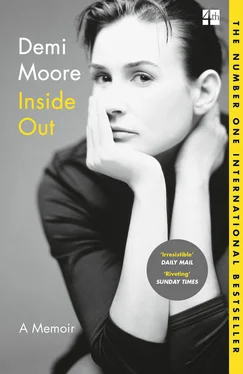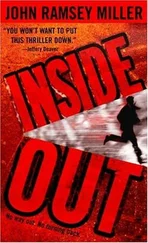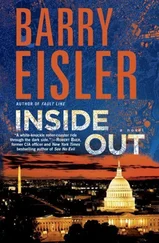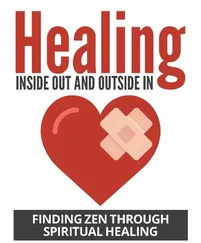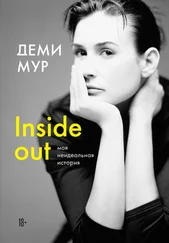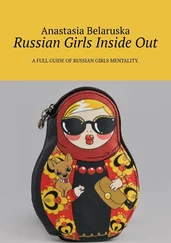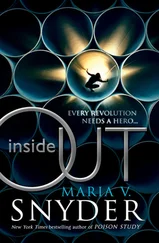I wasn’t a child anymore, but my mom insisted that we still needed a babysitter; she didn’t trust me to look after Morgan by myself. The girl she hired was the older sister of one of my classmates—let’s call her Corey—who happened to be much more developed and mature than I was. I sulked when Corey’s sister came to babysit, not wanting anything to do with her. The next morning, Corey added to the indignity by announcing to the entire school bus, “I guess Demi still needs a babysitter.”
I can still feel the hot flush of humiliation surging through my body. I was furious that my mother had put me in this position—had set me up like that. I remember feeling so exposed I thought I might die.
I wasn’t going to let this define my stint at Canonsburg Elementary. I didn’t need a babysitter. What I needed was a boyfriend.
I chose the cutest boy in the class: a blue-eyed, shaggy-haired blond named Ryder. And in a very short time, I was doing my victory lap, parading around the school holding his hand. Which actually felt really nice—for a moment.
WHILE I WAS dealing with the normal preteen girl stuff, my parents were coming undone. I’ll never know what the catalyst was for their descent in Canonsburg, but things started to fall apart that spring.
One evening, as my dad was sitting in the kitchen making his way through his usual six-pack of Coors and listening to James Taylor, he decided to clean his gun. I remember the way he looked that night: when he drank, his lazy eye went even more askew, and everything about him seemed glazed over. He didn’t notice there was a bullet in the chamber. When it went off, he blew a hole in the wall and the bullet grazed his forehead. There was blood everywhere. After the mess was cleaned up, my mother laughed it off, though inside I’m sure she was terrified. When I think about someone getting hammered and taking out a loaded gun in a house with kids running around, it’s just beyond me.
Another night that spring, I woke up to the sound of distressed voices and commotion. I stumbled into my parents’ room, where I found my mother thrashing and crying as my father struggled to hold her down. By the bed I saw a bottle of yellow pills. “Help me!” he screamed when he noticed me in their doorway. I walked toward them in a trance, not knowing—but on another level understanding completely—what I was witnessing: my mother trying to kill herself.
The next thing I remember is using my fingers, the small fingers of a child, to dig the pills my mother had tried to swallow out of her mouth while my father held it open and told me what to do. Something very deep inside me shifted then, and it never shifted back. My childhood was over. Any sense that I could count on either of my parents evaporated. In that moment, with my fingers in the mouth of my suicidal mother, who was flailing like a wild animal, and the sound of my father screaming directions at me, I moved from being someone who they at least tried to take care of to someone they expected to assist them in cleaning up their messes.
It was the early seventies, and my mom did what people were starting to do: she went to a therapist. She was going to get help and get better. She was going to find herself! There was the ambient energy of the women’s movement floating around the culture at that time, and we had a feminist neighbor my mother became friendly with who probably introduced Ginny to some of the ideas and catchphrases of women’s liberation. But in her fragile state my mom was impressionable: after she saw The Exorcist , she went through a Charismatic Christianity phase. She would take me to services at a Catholic church where they played George Harrison songs and danced around in dashikis.
She was trying to figure out who she was. Sometimes I would “overhear” her talking with our neighbor at the kitchen table about how she was struggling. (I was such a snoop, my parents would joke that I “didn’t want to miss a fart.” But looking back, I see that what I was doing was patrolling for chaos. My mother had just tried to kill herself: I had to stay on high alert.) She would complain about the ways my dad didn’t appreciate her and the deprivations of her childhood. They had been so poor that one Christmas she got her own doll wrapped up as a present, just wearing new clothes. To her, that doll symbolized the scarcity of her upbringing—the lack of money, nurturing, and attention she grew up craving. I heard that story many times.
I could feel the dynamics shift just a little in our house: for years, my mom had put up with my dad’s cheating and had been completely dependent on him financially and emotionally. It’s sad to say, but when she tried to kill herself, it had the effect of reclaiming a little power: she had shown my dad she might be capable of leaving him. Unfortunately, she had shown her children she was capable of leaving us, too.
My mother was repeating her own family history. Her first experience of male love was from the same kind of flirtatious, charismatic troublemaker as my dad. My maternal grandfather, Bill King, didn’t think much of my dad when my mother first started going out with him in high school, but the two men had a lot in common. Granddaddy was a charming womanizer and rule bender who played stand-up bass in a country band. He was very tough: one time when he had a toothache and they didn’t have the money for a dentist, he went up to the bathroom with a razor blade and cut the tooth out himself. Eventually, Granddaddy had a wild death to match his wild life: he was out drinking one night when he drove his beloved blue El Camino into—and under—a moving truck. He was decapitated.
I was ten when he died. I remember him as a silver fox, handsome and rugged, his strong hands stained by motor oil. He owned a little gas station where my cousins and I loved to play, but when my mom was young, he was out of work for a long time after he broke his back on the job, working construction with a road crew. My grandmother had to support them and the three daughters they had at the time—my mom and her older sisters, Billie and Carolyn. This was distinctly not the life my grandma Marie had hoped for. She had her heart set on going to college. Growing up on the border of Texas and New Mexico in a strict Pentecostal home, she was the first member of her family to graduate high school. But Marie ended up a young wife and mother working full time to make ends meet. She was stretched thin.
My mother’s interpretation of my grandma’s unavailability was that she, Ginny, was unlovable. She was a skinny, sickly child, and she never got over feeling neglected—never enough money, never enough love, an afterthought. It never occurred to her that my grandmother simply didn’t have the bandwidth to nurture her the way she might have wanted. Ginny wasn’t able to put herself in my grandmother’s shoes and imagine what it was like for her as a young woman, living with a cheating husband for whom she’d given up her dreams, having to support a family without the benefit of training or education—and taking care of three little kids on top of that.
My grandma Marie was by far the most dependable grown-up in my life. She was raised on a broomcorn farm in Elida, New Mexico, in the 1930s, and possessed a practical farmer’s do-what-needs-to-be-done competence. She was solid, consistent, and trustworthy. But for all her good qualities, she had taught my mother—who in turn taught me—some strange coping mechanisms. Whenever Granddaddy was unfaithful, he would convince Grandma Marie that it was the women who were the problem. He persuaded her after one affair that they had to move to get away from his pursuer, so they picked up and left for Richmond, California, where my mother was born. When Ginny was about twelve, after they’d moved back to Roswell, she came home early from school one day and walked in on her father in bed with his brother’s wife. His reaction was to scream at my mom—blame his daughter for the situation. He had been my mother’s safe harbor; she worshipped him. Their relationship was never the same after that.
Читать дальше
